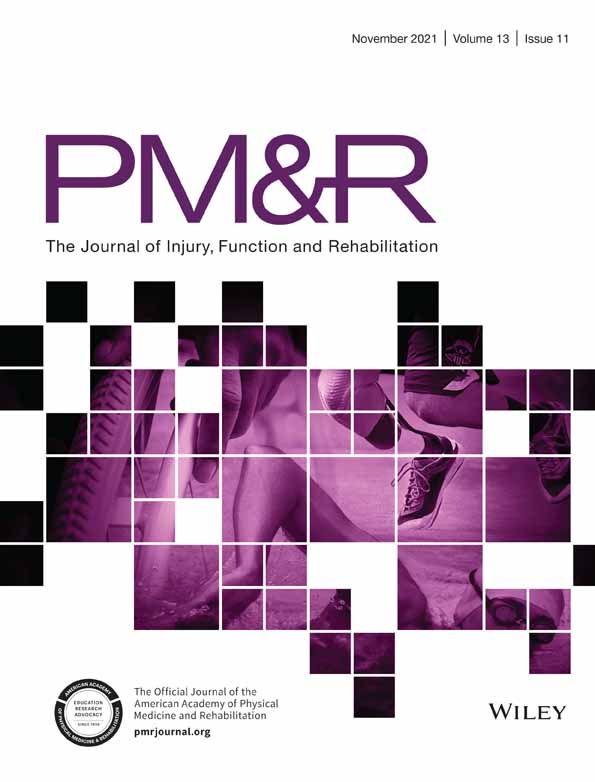Public health adherence and information-seeking for people with chronic conditions during the early phase of the COVID-19 pandemic
Funding information: Nancy and Buster Alvord Endowment; National Institutes of Health (NIH) Clinical and Translational Science Award (CTSA) program, Grant/Award Numbers: 5 U24 TR001579-02, U24TR00157 9, UL1TR000445; National Center for Advancing Translational Sciences of the National Institutes of Health, Grant/Award Number: UL1 TR002319
Abstract
Introduction
People with chronic conditions, common among rehabilitation populations, may have risk factors that put them at higher risk for more severe illness due to coronavirus disease 2019 (COVID-19).
Objective
To describe and compare adherence to public health guidelines, willingness to adhere to public health guidelines (including vaccination), information-seeking, and perceived trustworthiness of information among people with and without chronic conditions during the early stages of the COVID-19 pandemic.
Design
National cross-sectional online survey of people with and without chronic health conditions conducted from April through May 2020.
Participants
Survey respondents were people with and without chronic conditions, ≥18 years old, able to read English, and in the United States since January 2020. In total, 3109 survey responses were received and 2572 complete unique responses were used in the analysis.
Methods
The survey assessed demographics, adherence to public health measures, information-seeking, and perceived trustworthiness of information sources. Descriptive analyses characterized the sample, and t-tests and nonparametric tests were used to compare those with and without a chronic condition on the public health measures.
Results
Participants with a chronic condition reported high adherence to public health recommendations and high willingness to adhere to anticipated recommendations across a wide range of chronic conditions and similar to those without a chronic condition despite advised caution for people with underlying health conditions. Of those with a chronic condition, 70.8% reported a willingness to be vaccinated. Participants reported accessing information from varied sources, with perceived trust highest for the health care providers and lowest for social media.
Conclusion
Participants reported high adherence to public health measures, regardless of chronic condition status, during the early phase of the COVID-19 pandemic. Knowledge of adherence to public health measures, information-seeking, and trust in information can assist rehabilitation providers and organizations seeking to mitigate disease transmission, particularly for those with chronic conditions.




